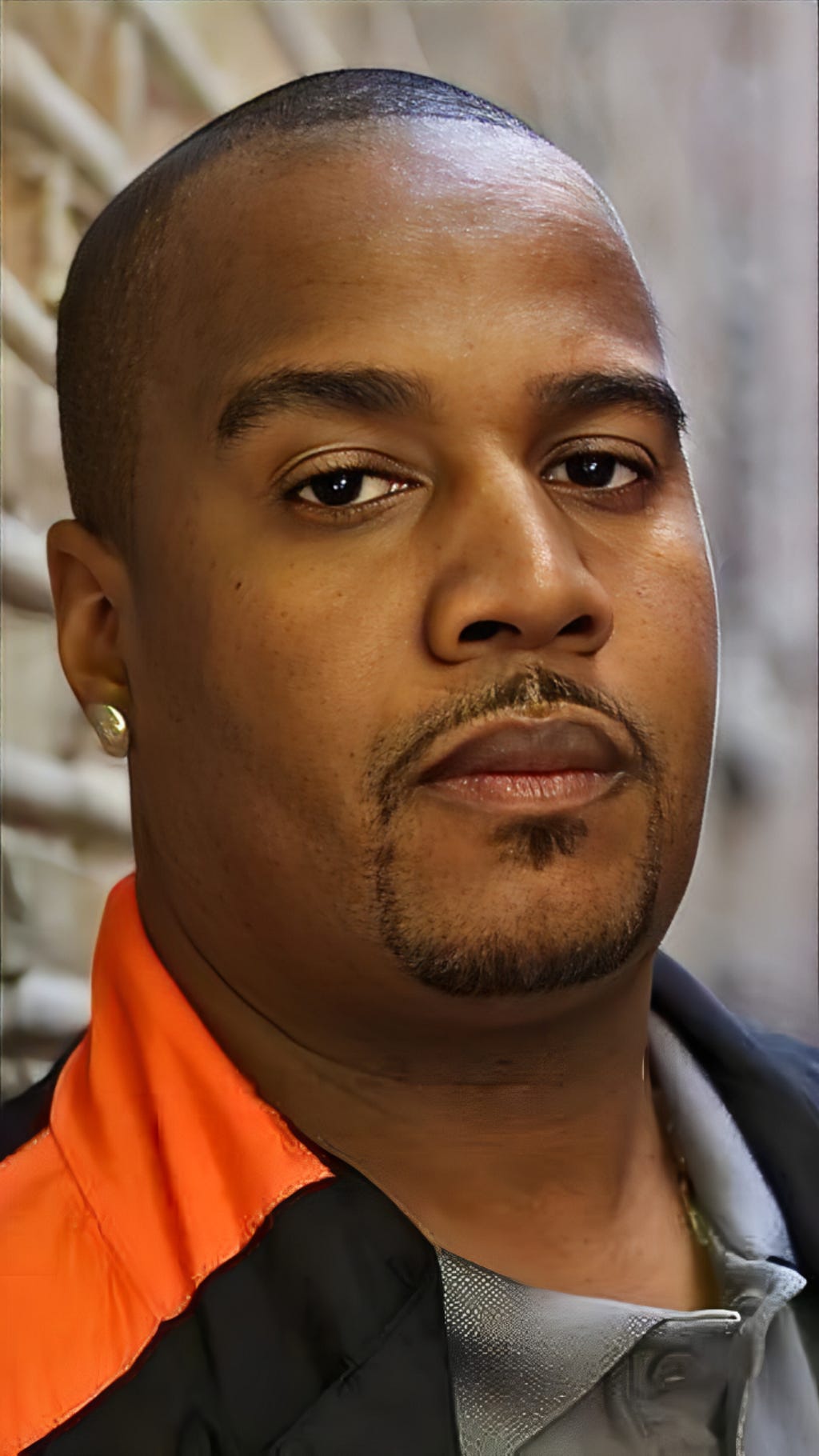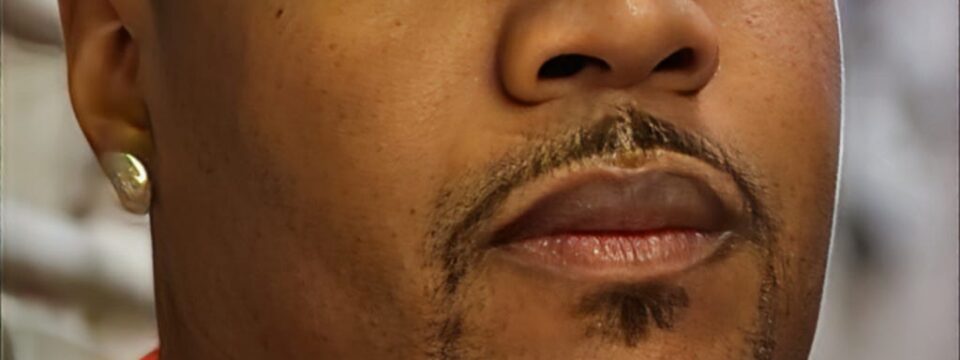
Doing this work, you must think on your feet at all times. I wish I had known that earlier. Situations can change instantly, so you must be prepared to adapt to them. Earlier in my career, I would think something was resolved, only to find out that a situation got flipped on its head five minutes later. You have to be ready for that. Prepared for a situation to go sideways.
As part of my series about “authors who are making an important social impact”, I had the pleasure of interviewing Cobe Williams.
Ricardo “Cobe” Williams is an award-winning peacekeeper, community activist, and public speaker who has spent the past decade training 1000+ violence interrupters in mediation and conflict resolution strategies across 52 sites in 23 US cities, as well as dozens more all over the globe. He also developed the peace tournament model alongside NBA players in Chicago, New York, Baltimore, Philadelphia, and New Orleans, using basketball to reduce violence. His forthcoming book, Interrupting Violence: One Man’s Journey to Heal the Streets and Redeem Himself, is part memoir and part call to action, providing a blueprint for cities across America looking for a new way to address community violence.
Thank you so much for joining us in this interview series! Before we dive into the main focus of our interview, our readers would love to “get to know you” a bit better. Can you tell us a bit about your childhood backstory?
I grew up on the South Side of Chicago in a community called Englewood, one of the most violent neighborhoods in the nation — gangs, drugs, poverty — and was born into one of the country’s most notorious gangs, the Black Disciples. My father was a drug dealer, and I grew up wanting to emulate him. I learned to deal drugs before I could even ride a bike. When these influences surround you, you become that because it’s what you are exposed to daily. I had positive influences, like others in my family, but I became part of my environment. I was part of the problem, and now am part of the solution. So much of the work I do today is informed by those experiences and attempting to be a better influence in my community.
When you were younger, was there a book that you read that inspired you to take action or changed your life? Can you share a story about that?
I got into reading when I went to college. I was in a unique program sponsored by Northeastern University in Chicago called University Without Walls, which gives college credit for life experience. While in the program, I read The Autobiography of Malcolm X, Just Mercy by Bryan Stevenson, and Alex Kotlowitz’s There Are No Children Here. These books helped me better understand my personal experiences and circumstances in a new way.
It has been said that our mistakes can be our greatest teachers. Can you share a story about the funniest mistake you made when you were first starting? Can you tell us what lesson you learned from that?
In some ways, my entire life and career are dedicated to making up for my mistakes when I was younger. I was part of the problem, and now am part of the solution. I want to give back to the community I took so much from early on.
Can you describe how you aim to make a significant social impact with your book?
My mission is to promote the work. It is always about the work. I have trained workers worldwide in violence interruption, conflict mediation, and outreach, including thousands of violence prevention professionals. This book is not just my life story but sharing this training. What does mediation truly look like? How can we use public health for public safety? It shows that violence is a learned behavior reinforced by social norms and that anything learned can be unlearned.
Can you share with us the most interesting story that you shared in your book?
The book is my life story, and in it, we alternate between different mediations that I worked on to prevent retaliation, which would lead to more violence, and my own transformational journey, which changed my thinking about violence to become a leader in this movement. I wonder if there is a book that has gone this in-depth into the process of conflict resolution and everything involved.
What was the “aha moment” or series of events that made you decide to bring your message to the greater world? Can you share a story about that?
Change is a funny thing. We often picture it as this one moment where everything is different, but a bunch of little moments add up to a transformation. When I was sentenced, my son was around three years old, the same age as I was when my father was locked up. He was in the courtroom, and here I am, being sent to the same prison. I knew then I didn’t want to go back. He’s yelling, “Daddy! Daddy!” as they are taking me off to holding in shackles. I made that decision right there, but it took years to shift my mindset and turn my thinking around. I had to go through a lot to commit to that decision.
Without sharing specific names, can you tell us a story about a particular individual who was impacted or helped by your cause?
For me, it was Shorty Freeman, the Founder of the Black Disciples, who started the gang I was a part of in the first place that helped me turn my life around. He used to say, “We are going to keep each other out of prison.” Strangely, this gang leader, who was larger than life, had turned a corner. He thought the killing was out of control and that we needed to do something about it. It means something when someone like that tells you there is another way. He took me under his wing and taught me to do something different with my life.
Are there three things the community/society/politicians can do to help you address the root of the problem you are trying to solve?
First, recognizing people can change for the better. As a society, that trips us up a lot. We love redemption stories but need help with policies supporting redemption. When someone serves their time, we should give them the opportunities and resources to succeed on the outside. Second, we need to understand that public health solutions exist for public safety. We have tunnel vision that everything has to be about punishment and incarceration as a society. Still, a whole range of solutions still need to be fully funded or scaled correctly. Finally, for me personally, never give up on anybody. There isn’t anyone beyond saving. We need the proper support.
How do you define “Leadership”? Can you explain what you mean or give an example?
I define leadership as someone who is both a good follower and a good leader. What I mean by that is someone who knows when to call the shots and move ahead but also where to fall back and listen to those around them. I firmly believe you shouldn’t ask anyone to do something you wouldn’t be willing to do yourself. Many so-called leaders whip people up and send them off into situations they wouldn’t get involved in personally. That is not strong leadership; that is just being a boss.

What are your “5 things I wish someone told me when I first started” and why? Please share a story or example for each.
Firstly, I wish I had understood burnout and how to prevent it before I started. Mediating conflict and setting up programs can be challenging and wear on you. Listening to yourself, tuning in, and knowing when you have to take a break and recharge your batteries are critical to success.
Along the same lines, knowing and understanding self-care is just as important. I wish I had known before I started that the things I do to recharge are just as important as the work itself if I had known that earlier in my career, I could have avoided a lot of headaches and sleepless nights.
I also wish that I had known that you can’t change everything. I have a personal philosophy that I never give up on anyone. I know how difficult I would have been to reach when I was younger, so I take that into my relationships, but some situations are out of your control. You have to remember that and make peace with it. Otherwise, you are just stuck thinking about what could have gone differently.
Doing this work, you must think on your feet at all times. I wish I had known that earlier. Situations can change instantly, so you must be prepared to adapt to them. Earlier in my career, I would think something was resolved, only to find out that a situation got flipped on its head five minutes later. You have to be ready for that. Prepared for a situation to go sideways.
Finally, I wish I had known you must put your all into this work. It requires you to be fully invested and fully focused. That is imperative.
Can you please give us your favorite “Life Lesson Quote”? Can you share how that was relevant to you in your life?
My Uncle Phil had a saying for almost every occasion: his “Phil”-osophies. He was a bartender most of his life, yet filled with wisdom and insight. He used to say, “Life is a beautiful thing once you learn to live it.” Phil passed from cancer in 2019. I miss him every day. He truly lived that way, appreciating everything life had to offer, not letting things get you down without being able to see the beauty around you. I try to live by that same philosophy. I believe we all should try to live that way.
Is there a person in the world or in the US with whom you would like to have a private breakfast or lunch with, and why? He or she might just see this, especially if we tag them. 🙂
I would love to meet Obama. He is still a paramount and influential leader, but he could do so many things for the community that would have a lasting impact. I want to share these ideas with him.
How can our readers further follow your work online?
https://www.interruptingviolence.com
This was very meaningful, thank you so much. We wish you only continued success on your great work!
Social Impact Authors: How & Why Author Cobe Williams Is Helping To Change Our World was originally published in Authority Magazine on Medium, where people are continuing the conversation by highlighting and responding to this story.
